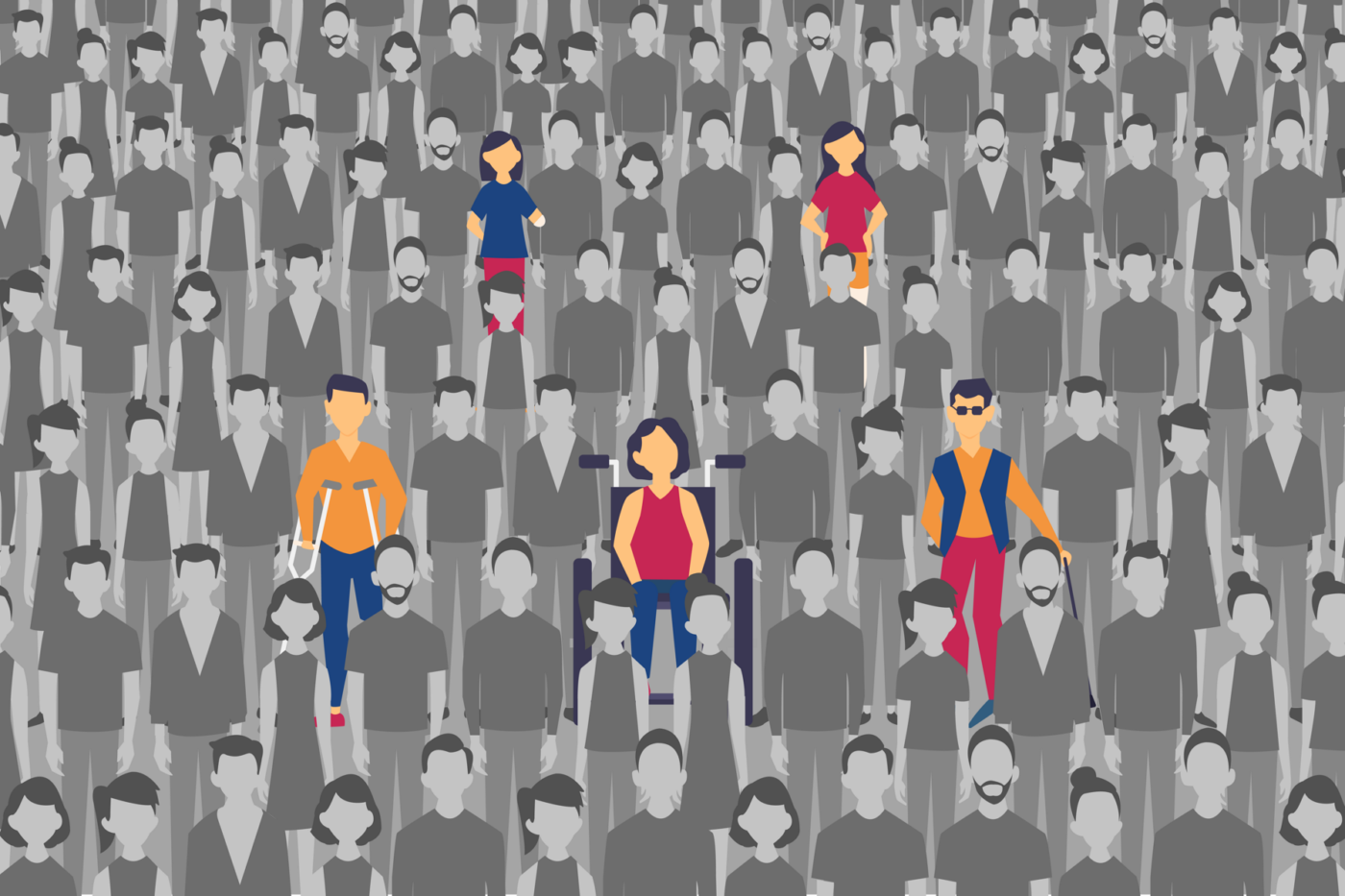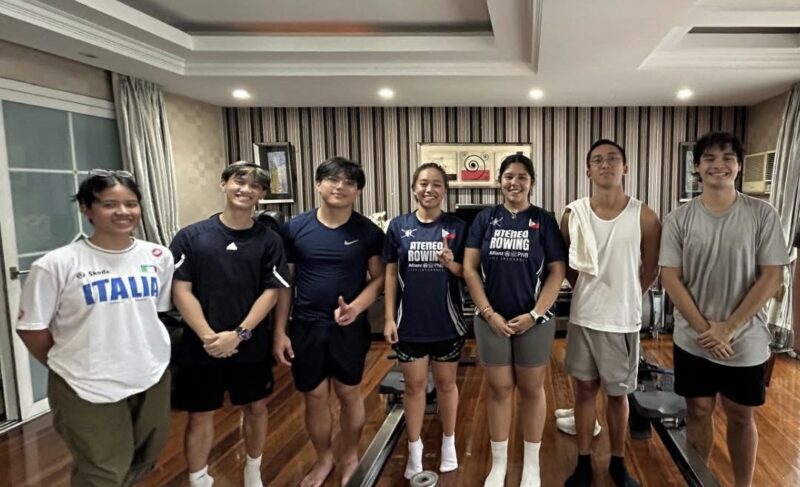UNIVERSITIES HAVE undertaken many efforts to cater to the varied concerns of persons with special needs (PWSNs). While certain technological advancements, such as Braille printers and chair lifts, make learning more accessible for physically-impaired PWSNs, schools across the country have yet to standardize the development of programs and equipment for persons with cognitive and developmental conditions. Within the Loyola Schools, efforts to address the needs of students with neurological conditions have been limited to insulated support groups of students and specialized crisis management protocol practiced by teaching faculty and service staff.
The difficulty faced by educational institutions in addressing the varied needs of PWSNs students may be attributed to the fact that neurological disabilities exist on a spectrum. PWSNs are individuals diagnosed with divergent physical, psychosocial, or neurological conditions that manifest in varying degrees. Notably, “PWSN” has been adopted as the recognized umbrella term for all individuals diagnosed with medical conditions, as opposed to the narrower term “Persons with Disabilities” (PWDs), which refers to those with motor and sensory disabilities.
According to the Loyola Schools Office of Health Services, the most common conditions among the Loyola Schools’ PWSNs students are Attention Deficit Hyperactivity Disorder, Autism Spectrum Disorder (ASD), and a variety of motor and sensory disabilities. Due to the complex nature of these conditions, much of the general public remains uneducated on the nuances of PWSNs’ education. As a result, the PWSNs sector continues to face social alienation and systemic discrimination.
Stronger national legislation must be enacted to progressively empower the PWSNs sector to live and study without fear of ostracization. Furthermore, premier private institutions such as the Ateneo must take the initiative to institute meaningful education and social integration programs. While the University itself is not a primary center for special education, it must be challenged to establish and maintain a safe and progressive learning environment for all individuals who aspire to learn within its halls.
On the national scale
The integration of PWSNs in Philippine society is made possible through the implementation of disability laws that aim to address the barriers that the sector faces in everyday life and protect them against discrimination. One such law is Republic Act (RA) No. 7277, also known as the Magna Carta for Disabled Persons of 1992. This guarantees PWDs equal rights, privileges, and protection from discrimination in accessing the following: Employment, education, health, auxiliary social services, telecommunications, accessibility, and political and civil rights.
In another move to increase sensitivity to PWSNs, the legal terminology for the sector has also changed over the years to become more inclusive. Though the original version of RA No. 7277 only covered PWSNs with physical, mental, or sensory disabilities, the law expanded its legal definition of PWDs to be more inclusive of those with intellectual disabilities through its implementing rules and regulations.
The government has also made efforts to provide PWSNs with financial support. For example, RA No. 10754 of 2016 mandates the State to provide PWSNs with benefits and other privileges such as tax incentives. Under this tax exemption law, PWSNs are entitled to at least 20% discount and Value Added Tax-exemption when purchasing certain goods and services from establishments such as grocery stores, hospitals, pharmaceutical chains, and recreational spaces upon presentation of cards identifying them as PWSNs.
PWSNs with developmental disabilities that are 17 years old or younger are also entitled to receiving subsidies from PhilHealth, which cover expenses for rehabilitation therapy, and assessments by medical professionals. These subsidies do not cover PWSN adults with developmental disabilities, but RA 11228—signed into law last February—provides all PWSNs with mandatory PhilHealth coverage and may prove to be one step towards the sector’s equal access to health care.
For some, studying in a school such as Ateneo is made much more possible because of access to a developmental pediatrician early on in their lives. This was the case for PWSNs undergraduate Dino Mirasol (3 BS MA) with Autism Spectrum Disorder (ASD), who emphasized the importance of making therapy and developmental pediatricians more accessible. “…It’s not something available to a lot of people because it [is costly]. The moment you pass a certain age and you still cannot speak, there’s no returning…even more for someone on a spectrum,” he asserted.
Aside from this, PhilHealth coverage for PWSNs could still be further expanded. A study by researchers from the Philippine Institute for Development Studies found that institutions such as PhilHealth could expand their subsidies to cover nursing or caregiver support and increase their medication subsidies for PWSNs—expenses that are not currently covered by PhilHealth.
Flaws in legislation
There are many government initiatives to accommodate the needs of PWSNs, but the question lies in whether they are well implemented. Statistics and studies point to the opposite. Although the Department of Education upholds the rights of PWSNs to education by providing training for public school teachers and facilities to cater to PWSNs, only 2% out of 5.49 million young PWSNs are receiving government assistance for education.
Moreover, the United States’ State Department’s 2018 human rights report cited the following issues in the Philippines’ PWSNs policies: “Weak implementing regulations, insufficient funding, and inadequately focused integrative government programs,” based on the sentiments of advocates nationwide. The report also mentioned continued discrimination alongside other challenges in finding employment as the main struggle faced by PWSNs in that year.
Mirasol attested to how government efforts to integrate PWSNs into society have not concretely translated to increased sensitivity to PWSNs. “There are many Facebook pages that continue to make fun of people with disabilities. Filipinos don’t know how to ‘meme’ correctly. It’s tasteless and judgmental,” Mirasol explained.
As such, the prevalence of this kind of discrimination calls for the government to push for increased integration of PWSNs into environments like the workplace and in schools.
Building bridges
Given the national government’s own lackluster execution of its accessibility and anti-discrimination laws for PWSNs, it is now more important than ever to review how the University has accommodated PWSNs’ spectrum of needs—and how it can further improve down the line.
Aaron Chua (3 BS MGT-H), an undergraduate student who uses a wheelchair, shared how the University is able to comply with the aforementioned provisions. Chua mentioned that offices are always considerate enough to accommodate his requests for ground-level classrooms. In addition, the Office of Health Services encourages him to give them regular medical updates for transparency.
“I also like [how] instead of exempting me from activities that I could not join, the Ateneo would usually give me alternative options so that I could still experience the Atenean life that everyone is experiencing,” he added.
One such example would be Ateneo’s Physical Education program, which offers courses that are PWSN friendly such as Recreational Activities and Foundations of Physical Fitness and Health. Professors of Physical Education also offer substitute requirements if PWSN students are physically or mentally unable to accomplish a certain activity.
However, there are some campus protocols that could stand to be improved to accommodate PWSNs. One of Chua’s biggest concerns was about emergency drills; he remains unsure if the school’s personnel are properly oriented on how to assist him in case of an emergency, given that he is confined to a wheelchair. Chua likewise voiced his troubles with road accessibility, sharing that he has a difficult time navigating ramps and roads due to their misalignment with the asphalt.
Similarly, Mirasol asserted the importance of further encouraging consideration when interacting with PWSNs across the spectrum. “Socially, I would like a little more consideration [when interacting] because it’s already difficult as it is,” he lamented. According to him, he has the tendency to “say stuff that [he] shouldn’t really say,” which can lead to people talking over him or just outright ignoring him. Mirasol’s concerns echo the need for more programs to raise awareness for the condition of the PWSN sector and the struggles they seek to overcome with the help of empathy from the community.
PWSNs like Mirasol have developmental conditions with specific needs that differ from the concerns of students with sensory or physical disabilities. Given the nuances of each diagnosis, the school must also invest in additional initiatives that accommodate PWSNs with neurological and psychosocial conditions. The University can take inspiration from public schools who have teachers who are trained with special education skills to accommodate PWSN needs. One significant step for Ateneo would be to implement similar programs—perhaps through special education training for its teachers or centers for PWSN education.
Fostering dialogue
Aside from the initiatives that could be implemented to make education more accessible for PWSNs, there is still much listening and engaging to be done with PWSNs to meet their socio-emotional needs.
With regard to how professors can better treat PWSNs, Mirasol suggested that they could encourage students to declare if they have any conditions on their student profiles. “In my three years of being an Atenean, no one has explicitly asked,” he said.
Mirasol likewise expressed wanting to see more programs on awareness about PWSNs across different ends of the spectrum to breed inclusivity within the community on a larger scale. “A lot [of Ateneans] don’t really talk about it,” he said. “I’ve had to explain it a few times.”
Programs focused towards promoting the visibility of marginalized sectors such as PWSNs are the primary directive of student organization projects, such as the Ateneo Special Education Society’s Disability Awareness Week. Together with the recently announced Sanggunian Commission for Persons With Special Needs Inclusion, the students of the Loyola Schools are actively endeavoring to foster an inclusive, empathic community within the University.
For all the University community’s progress towards accessible education for its PWSN students, the sector still finds itself wanting of more consideration, empathy, and patience. Much of the school’s and the national government’s programs that cater to PWSNs address their physical needs, yet fostering inclusion must go beyond this. Listening to PWSNs who have needs that go beyond the physical must become a community effort and may require more assistance from teachers or specialized education programs to better cater to their abilities. Empowerment and visibility for the PWSNs sector remain concrete goals to aspire towards in supporting the sector’s often drowned-out calls for change.







